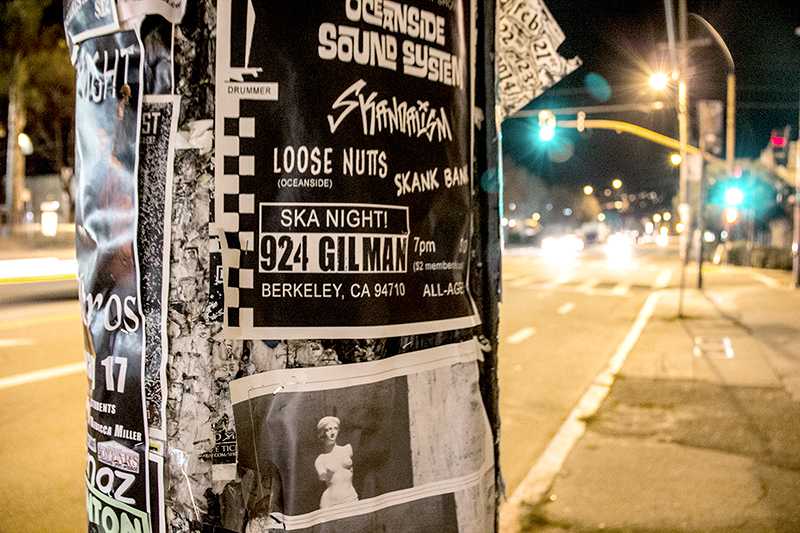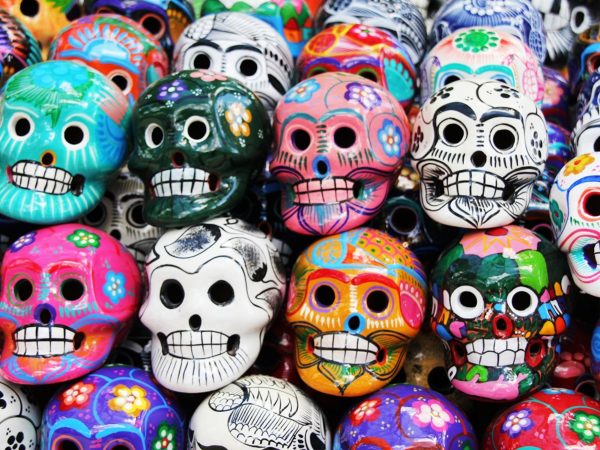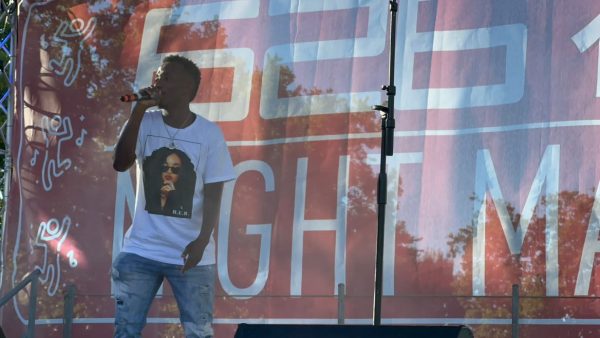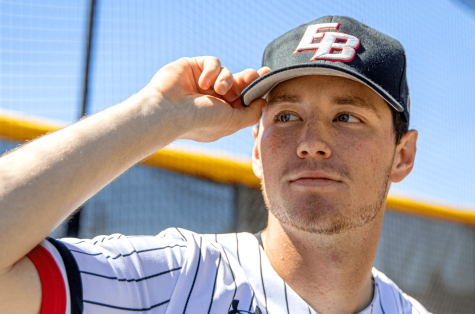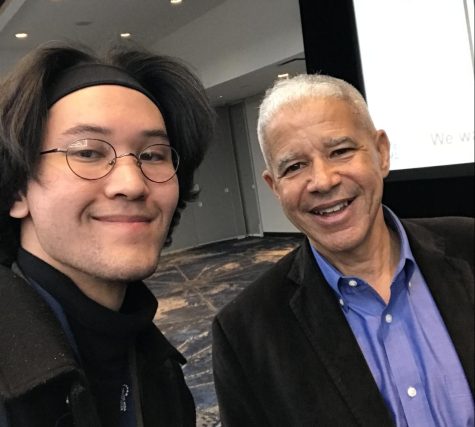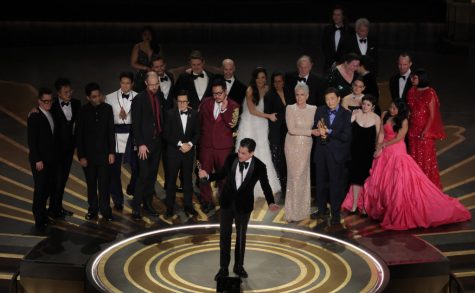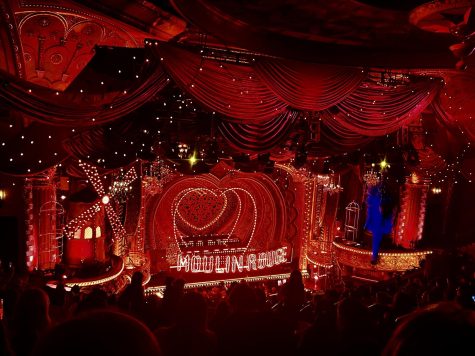Berkeley’s Gilman Street still a pillar of the punk music scene
The Gilman is well respected in the local Bay Area music scene.
Walking through run-down, windy, and quiet Gilman Street in Berkeley is a route that many take to catch the bus or to get to work on a normal day.
On weekends, however, another crowd takes over the corner of Eighth and Gilman. Punk fans ranging from 12 to 60 years old flock to the Bay Area’s most legendary punk venue, 924 Gilman Street or as it is known to many: The Gilman.
Clubs like CBGB in New York, The Farm, and Mabuhay Gardens in San Francisco are among these clubs that have been forced to close their doors, but the Gilman remains open.
The club located just one mile from the North Berkeley BART station, hosts shows on Friday, Saturday, and Sunday of each week. From its roots as a punk club, The Gilman has branched out to include ska, metal, and even hip-hop nights.
The venue in Berkeley is sacred ground for many kids and adults involved in the Bay Area punk rock scene over the years. With bands such as Green Day, Rancid, and Operation Ivy having set foot on that red carpet stage, any band that plays there is destined to feel the pressure to perform at a high level.
The Gilman is an all ages DIY, volunteer run, not-for-profit music club. For those unfamiliar, DIY, or Do It Yourself, refers to a style of operation in which the venue and its bands work with each other rather than through a promoter or record label to book shows.
In fact, The Gilman will not book or allow major-label bands to perform at their club, emphasizing their commitment to supporting local and independent artists.
Just like any other venue, the booking process must be completed months in advance, however, The Gilman’s process has a few extra steps involved. Before bands are booked to play, they go through a screening process where they send a sample of music to the club along with song lyrics.
The purpose of this is so that the club can review content to ensure that the music does not violate the club’s rules. Among these rules are “No Racism, No Sexism, No Homophobia,” as posted on an eight-foot wall as just inside the venue. Also included in these rules are “No Alcohol, No Drugs, No Fighting.”
“The rules on drugs, alcohol, homophobia, and racism are great,” said David Marroquin of San Lorenzo-based ska band The Skunkadelics. “They help provide a safe place for individuals to come together and listen to good music.”
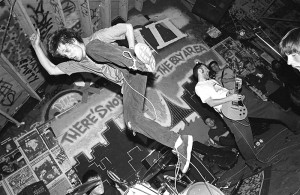 A lot of these rules are aimed at making The Gilman a safe, welcoming, and fun all-ages environment for kids to be out late on Bay Area weekend nights. A main priority is “Keeping it safe for the kids.” said Tony Acosta, head booker at The Gilman. “We have a set of rules that people agree to follow when becoming a member of the club by purchasing a membership card.” Many attribute this to the club’s longevity.
A lot of these rules are aimed at making The Gilman a safe, welcoming, and fun all-ages environment for kids to be out late on Bay Area weekend nights. A main priority is “Keeping it safe for the kids.” said Tony Acosta, head booker at The Gilman. “We have a set of rules that people agree to follow when becoming a member of the club by purchasing a membership card.” Many attribute this to the club’s longevity.
Small punk clubs close down as a result of a lack of funding because of rising rent prices.
The Gilman costs about $5,000 to operate monthly, and shows cost between $8 and $10 to attend. Providing affordable and safe entertainment to punks around the Bay Area is a priority to the club.
In a time where record labels are dying, consumers have relied on free digital downloads of music, and the punk scene is said to be shrinking, The Gilman becomes increasingly important for its volunteers and committed patrons.
Many people whom attend these shows say they regularly feel like they are part of a close-knit community. “You end up seeing a lot of the same people when you play or go to see shows and you end up getting acquainted with them,” said Marroquin.
Some of the people there go to seek out a sense of true belonging. When someone falls down at a show, members of the audience are right there to pick them up.
Every person that attends a show for the first time must purchase a $2 membership card that is good for one year. The back of these cards read: “No alcohol in or around the club. No violence or stage diving. No graffiti outside the club. No vandalism in the neighborhood.”
Walking down Gilman St., one would never notice the club in passing. As you enter the unintentionally disguised establishment, you see art plastered on almost every inch of the 27-year-old walls.
This vibe is not organized. Though some murals do not get touched for longer periods of time, most wall spots are fair game. Quotes, paintings, and band names cover the walls. Areas of The Gilman’s interior are coated with local and touring bands’ stickers. Yet it does not feel as chaotic as it sounds.
The occasionally ignored “NO STAGEDIVING” sign hangs above the stage as a reminder to bands and crowd members that loss of insurance can cause the club to close down. Sometimes though, things can get out of hand.
The Gilman’s official capacity is 300 people. However, when larger punk bands come through on tour, the capacity is very close to being met, and is occasionally exceeded. Recently the punk band OFF!, consisting of members of Black Flag, Red Kross, and Rocket From the Crypt, brought the venue to double capacity.
Nights like these are good for the club. In one night like that, they can pay for another month of rent and utilities.
Volunteers handle all operations of The Gilman. Head Financial Officer, Booker, and Coordinator Jeff Armstrong, brother of Tim Armstrong of bands Rancid and Operation Ivy has been around to see the club grow from the beginning. It takes more than just Armstrong to keep things moving.
Volunteer meetings are held on the first and third Saturday of each month, and anyone is eligible to attend. These volunteers are trusted with many responsibilities like coming early to set up for shows, staying late to sweep the floors, taking care of ticket sales, and working the snack bar. They are paid free entrance to the show that they are working.
The Gilman is a special place to many, and is respected throughout the punk scene. Touring bands select this space to play at because of its history and ability to keep the Bay Area music.
*The Pioneer discloses that the author of this article, Sam Benavidez has previously played at The Gilman.




